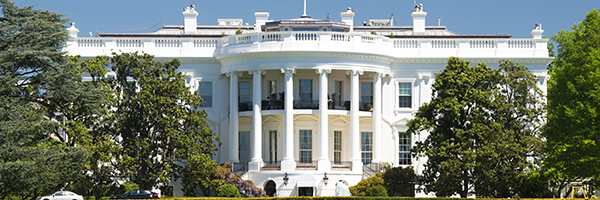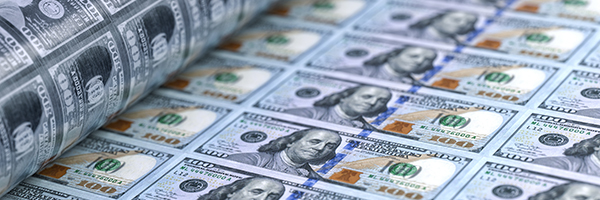 April 20, 2025
April 20, 2025
What You Need to Know Today:
No good new for Fed interest rate cuts in today’s inflation data
Today’s release of the PCE (Personal Consumption Expenditure) index, the Federal Reserve’s preferred inflation measure, wasn’t good news for investors hoping that the central bank will quickly resume interest rate cuts. The PCE climbed 2.6% in December from a year earlier, faster than its 2.4% annual rate in November and above the central bank’s 2 percent target. Compared to the previous month, prices were up 0.3%.

Pick #6 Fortinet for my Special Report “10 new stock ideas for an old rally”
Today I added Fortinet (FTNT) as Pick #6 for my Special Report “10 new stock ideas for an old rally.” I also added the stock to my Jubak Picks Portfolio. Here’s what I wrote:
There’s a long-term buying cycle in the firewall cyber security sector.

Saturday Night Quarterbacks says (on a Sunday), For the week ahead expect…
In normal times, the November 7 meeting of the Federal Reserve’s interest-rate setting body, the Open Market Committee would be the big event of the week. But these aren’t normal times in case you haven’t noticed. The country faces a stark choice on Tuesday and the polls show essentially a dead heat. And then add in fears that Donald Trump and/or his followers won’t accept the election results if he loses. Traders and portfolio managers have been adding hedges to protect against market volatility in the days around the election.
Nvidia to replace Intel in Dow Jones industrials Average–another catalyst for shares
AI chipmaker Nvidia (NVDA) will join the Dow Jones Industrial Average, replacing chipmaker Intel (INTC), S&P Dow Jones Indices, the owner of the 127-year-old index, said late Friday.

Economy added only 12,000 jobs in October–if we can trust the data
The U.S. economy added 12,000 jobs in October. The unemployment rate, which uses a different survey method, held steady at 4.1%. The Bureau of Labor Statistics revised the August and September reports to take a total of 112,000 jobs off earlier estimates. The average job growth over the past three months is now 104,000, down from 189,000 over the six months before that. The revised data and the October estimate are both more in line, in my opinion, with what is likely to have been happening in the economy as the result of high interest rates from the Federal Reserve. I thought hugh interest rates should have been slowing the economy more than the initial data suggested. And now it it looks like those high rates were working much more in line with past history of the economy. Of course, the big question today is should we believe the October report

Fed mission almost accomplished as PCE inflation dips to 2.1% rate
The Federal Reserve’s preferred measure of U.S. inflation, the Personal Consumption Expenditures (PCE) price index, fell to a 2.1% annual rate in September.

Special Report: Your 10 Best Moves for the Rest of 2023, Part 2–10 of 10 Moves (revised on 10/22)
So what do you do with your portfolio for the rest of 2023? And what’s your best strategy to be prepared for 2024? In Part 1 of this Special Report I laid out the 10 developments that I thought would drive the financial markets for the rest of 223 and into 2024. Today, in Part 2, I’m going to give you the first 2 of 10 moves to take–with as much detail and as many specifics as possible–that you should be making now to position your portfolio for the uncertainties of the last quarter of 2023.
Live Market Report (20 minute delay)

Fed raises interest rate by 25 basis points as expected
Not a whole lot of news out of today’s breathlessly awaited meeting of the Federal Reserve’s Open Market Committee. The committee raised its short-term benchmark rate by 25 basis points to a range of 4.75% to 5%. That move had about 80% odds in its favor going into the meeting. The Dot Plot projections kept the interest rate forecast at 5.1% for the end of 2023. That was unchanged from the December Dot Pot projections.

FOMA lives! At least with Big Money
Want to know why stock prices have been so resilient in the face of a global banking crisis and the prospect of higher interest rates from the Federal Reserve? FOMA. Fear of missing out. Especially among some of the world’s largest money managers. Some of the world’s biggest investors are looking beyond interest-rate hikes, bank failures, and the threat of recession to one of the greatest fears of all money managers—-missing out on the next big rally, Bloomberg reports.

Ahead of the Fed’s decision on interest rates, the signs are that banks are pulling back on lending because of the banking crisis
Ahead of the Federal Reserve’s decision on interest rates today, banks look like they’ve cut back on lending as a result of the Silicon Valley Bank/Signature Bank/ etc. crisis. And economists are reminding us all, that a reduction in bank lending because of fear of a banking crisis is just as much a tightening of the money supply as higher interest rates from the Fed.

It’s my VIX Call Options trade all over again–almost
On March 6, I bought the May 17 Call Options with a strike of 23 on the CBOE S&P 500 Volatility Index (the VIX) when the index traded at 18.61. I figured that the “Fear Index” was so low that it wouldn’t take much to push it and these options higher. A week later the options were up 116% after the VIX climbed to 26.52. Historically, that isn’t a very high reading for the VIX, which can easily hit 35 to 45 when fear engulfs the market. I’m still holding my June 21 Call Options with a strike of $23. But I’ve been looking for a chance to replay that earlier trade. Somehow (LOL) I don’t think this market is done with volatility.

Please Watch My YouTube video: Trend of the Week There is No Trend
This week’s Trend of the Week: There is no Trend. When I was filming this video on Tuesday the 14th, the S&P was up almost 2%, the DOW was up almost 1.5%, the NASDAQ was up 2.23% and the VIX, which had been climbing higher with the Silicon Valley Bank collapse, was down almost 15%. Since filming, the markets dipped sharply with the threat of Credit Suisse going under, and have trended slightly upward since. If you’re going to trade in this market, you have to do one of two things. One thing is to be very fast, and trade on the bounces as they show up. The other tactic is planning ahead. Long-term in this market is about a week. A week prior to filming (3/6) I bought Call Options on the VIX (the volatility index) and I sold them on March 13 with a 108% return. On March 14, however, those VIX Call options were down 27%. Talk about volatility! The trend is, there is no trend. Subscribe to my JubakPicks.com to get timely posts on how to keep up with the chaos. For more options and other volatility plays, subscribe to JubakAM.com.

Market consensus converges on 25 basis point interest rate increase from the Federal Reserve tomorrow
The CME FedWatch Tool, which calculates the odds of a Fed move on interest rates by looking at prices in the Fed Funds Futures market, puts the odds of a 25 basis point interest rate increase from the U.S. central bank tomorrow at 86.4%. That’s up from 73.8% on March 20.

That’s stability? First Republic shares drop another 47% today
Shares of “troubled” (is that fair? just “troubled?”) First Republic Bank (FRC) fell another 47.11% by the close today, March 20, after credit rating company S&P Global lowered the bank’s credit rating for the second time in a week.

Global banking stocks lose $460 billion in March (so far)
Bank shares around the world have lost $460 billion so far in March (as of the close on March 17.) That’s a lot of money. Even these days when a coffee can run you $5.60. That’s the worst loss for the sector since the March 2020 Covid plunge.

Please join me for a live Q&A on YouTube at noon on Tuesday, March 21
A live Q&A!! Watch along on my YouTube channel. Ask your questions live. Get your answers live. Post your questions in advance in the comments to this post. And get them answered live on Tuesday.

With banks still in crisis, are tech sector stocks a beneficiary?
Ok, so Dan Ives is talking his book (or sector at least) but he still raises an interesting point. (Dan Ives is a Managing Director and Senior Equity Research Analyst covering the Technology sector at Wedbush Securities since 2018.) With bank stocks in particular and the financial sector in general in turmoil, will investors looking for steady earnings turn to tech stocks? (Well maybe not all tech stocks but how about Apple (AAPL) and Microsoft (MSFT)?

Credit Suisse takeover by UBS raises new issues in debt market
Solve one problem; create another one. While the news of UBS Group AG’s takeover of Credit Suisse brought an end to some worries that financial markets would go into Monday without some deal to rescue a bank regulators had called systemically important to the global financial system, the terms of the deal have already started to send shock waves through the bond and derivative markets.

Saturday Night Quarterback says, For the week ahead expect…
The Federal Reserve will meet on Wednesday, March 22 to set interest rates. There are three things to watch from that meeting. First, whether the Fed will raise interest rates or not and by 25 basis points, 50 basis points, or not at all. Second, we will get the first update of the Dot Plot since the December 14 meeting that projects what Fed officials think interest rates, inflation, unemployment, and GDP growth will be at the end of 2023 and 2024. Third, the financial market reaction to the news out of the meeting will tell us if the Fed (as I’d argue) has lost control of the interest rate narrative and that the bond market is now calling the direction and pace of changes in interest rates.

So how scared were banks this week? A record $164.8 billion scared; fear like this doesn’t vanish quickly
Banks borrowed a combined $164.8 billion from two Federal Reserve backstop facilities in the most recent week. Data published by the Fed showed banks borrowed $152.85 billion from the discount window-—the traditional liquidity backstop for banks—-in the week ended March 15. That was a record high for a week. And it was up a staggering $160 billion from the $4.58 billion borrowed the previous week. And the week’s borrowing was an all-time high, easily surprising the prior all-time high of $111 billion. That high was set during the 2008 financial crisis. By this measure, at least, banks see the current threat as equal to a global financial crisis.

Please join me for a LIVE YouTube Q&A at noon on Tuesday, March 21
A live Q&A!! Watch along on my YouTube channel. Ask your questions live. Get your answers live. Post your questions in advance in the comments to this post. And get them answered live on Tuesday.

Step #2 for my Special Report: 5 Steps for the Next 5 Months
Here’s Step #2: 3 essentials to cash management now. I’ve added it to the main Special Report so you’ll find both Step #1 and Step #2 there. And I’m posting Step #2 separately so that you will be sure not to miss it. (I’ve also added links to the two earlier Sell posts with 24 stocks to sell.)

Please Watch My New YouTube Video: Quick Pick Barrick Gold
Today’s Quick Pick is Barrick Gold (NYSE: GOLD). There are three big arguments for owning gold, and Barrick Gold specifically, right now. Number one is that gold always does well when the markets are volatile and people are unsure where else to put their money. Gold is the safe haven. Second, if the Fed pauses rates, gold will be back on the upswing. Gold generally doesn’t pay dividends, so if interest rates are higher, people will put their money where they can get a return through dividends (not gold), but as the rate hikes stop, gold will become more attractive. The third reason is specific to Barrick Gold because although it’s a gold mining company, it gets about 18% of its revenue from the copper it mines alongside the gold. The market for copper has been growing with the renewable energy transition. Electric vehicles use massive amounts of copper and copper miners haven’t been investing to keep up with future demand. Year to date (as of March 10), Barrick was down about 6.81% and Morningstar calculates it as 24% undervalued. While I mentioned that most gold stocks don’t pay a dividend, Barrick actually does, at about 3.23%, and they just announced another $1 million stock buyback. As the turmoil in the market continues, Barrick will continue to go up as people look for a safe haven from the chaos.

Treasury yields jump as prices fall–What me worry?
Today at 2:30 p.m. New York time the yield on a 10-year Treasury was up 10 basis points to 3.55%. Yesterday the yield had dropped to 3.50%. The yield on the 2-year Treasury, very sensitive to sentiment on Fed interest rate policy, crossed back above 4% to 4.15%. Yesterday the yield had dipped to 3.99%. Another day like this and we’ll see some short-term yields, 6-month perhaps–above 5% again.

ECB sticks to inflation fighting with surprise 50 basis point interest rate increase today
The European Central Bank raised its benchmark short-term interest rate by another 50 basis points today. The bank said that the European banking system has strong capital and liquidity positions in spite of problems at Credit Suisse that led that bank to borrow $54 billion from the ECB yesterday. Fighting inflation remains the bank’s top priority.

Swiss National Bank says it will provide liquidity to Credit Suisse
The Swiss central bank said today that it will provide a liquidity backstop to Credit Suisse if needed.“Credit Suisse meets the capital and liquidity requirements imposed on systemically important banks,” the Swiss National Bank said in a statement late Wednesday. “If necessary, the SNB will provide Credit Suisse with liquidity.”

Does moderation in Producer Price Index inflation give the Fed enough cover to NOT raise interest rates next week?
U.S. prices at the wholesale level, the producer-price index, fell in February from January, the Bureau of Labor Statistics reported this morning. The producer-price index fell 0.1% in February from January after a 0.3% month-to-month increase in January. Will that be enough so that the Fed has an argument for NOT raising interest rates next week?



